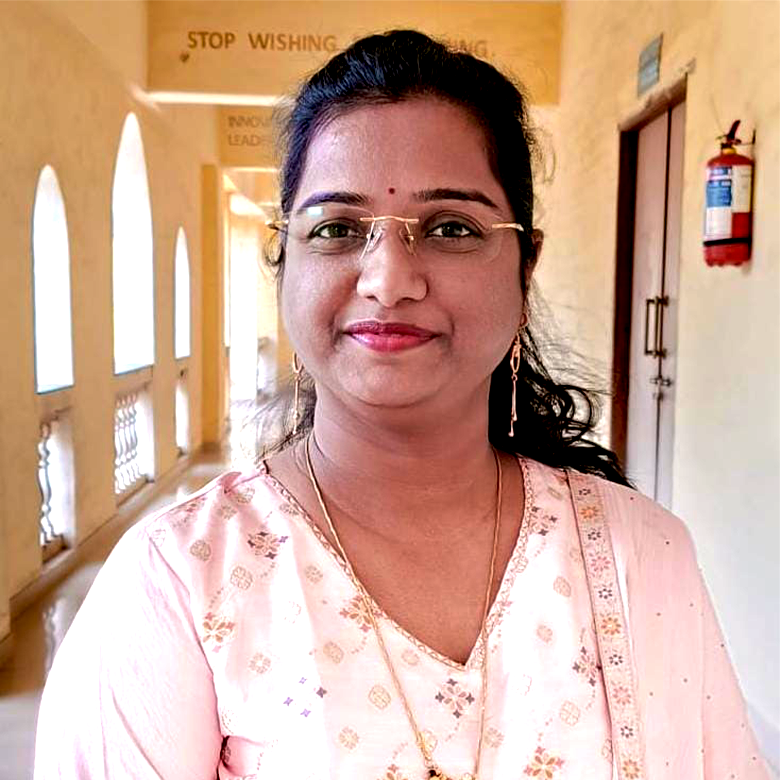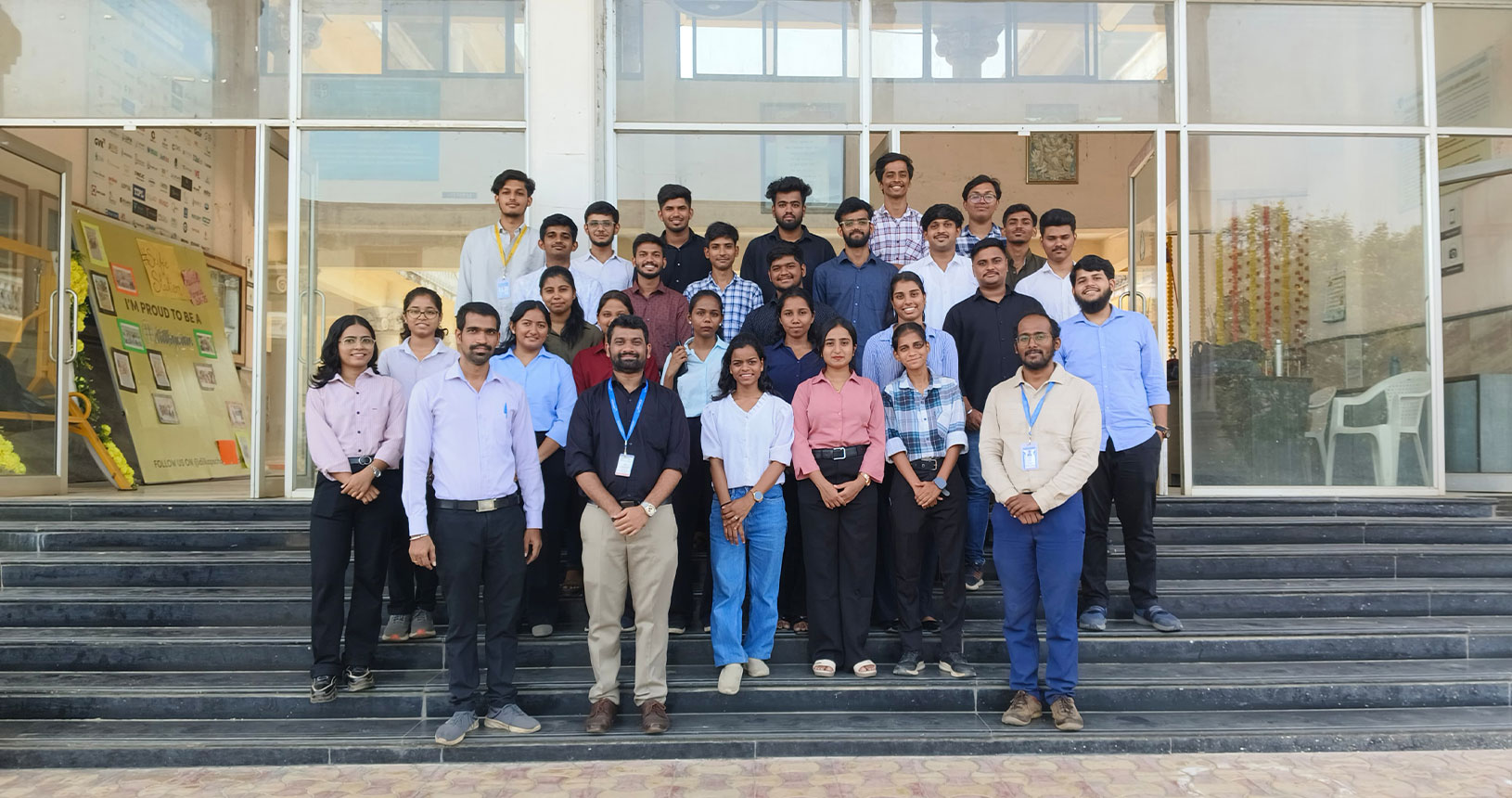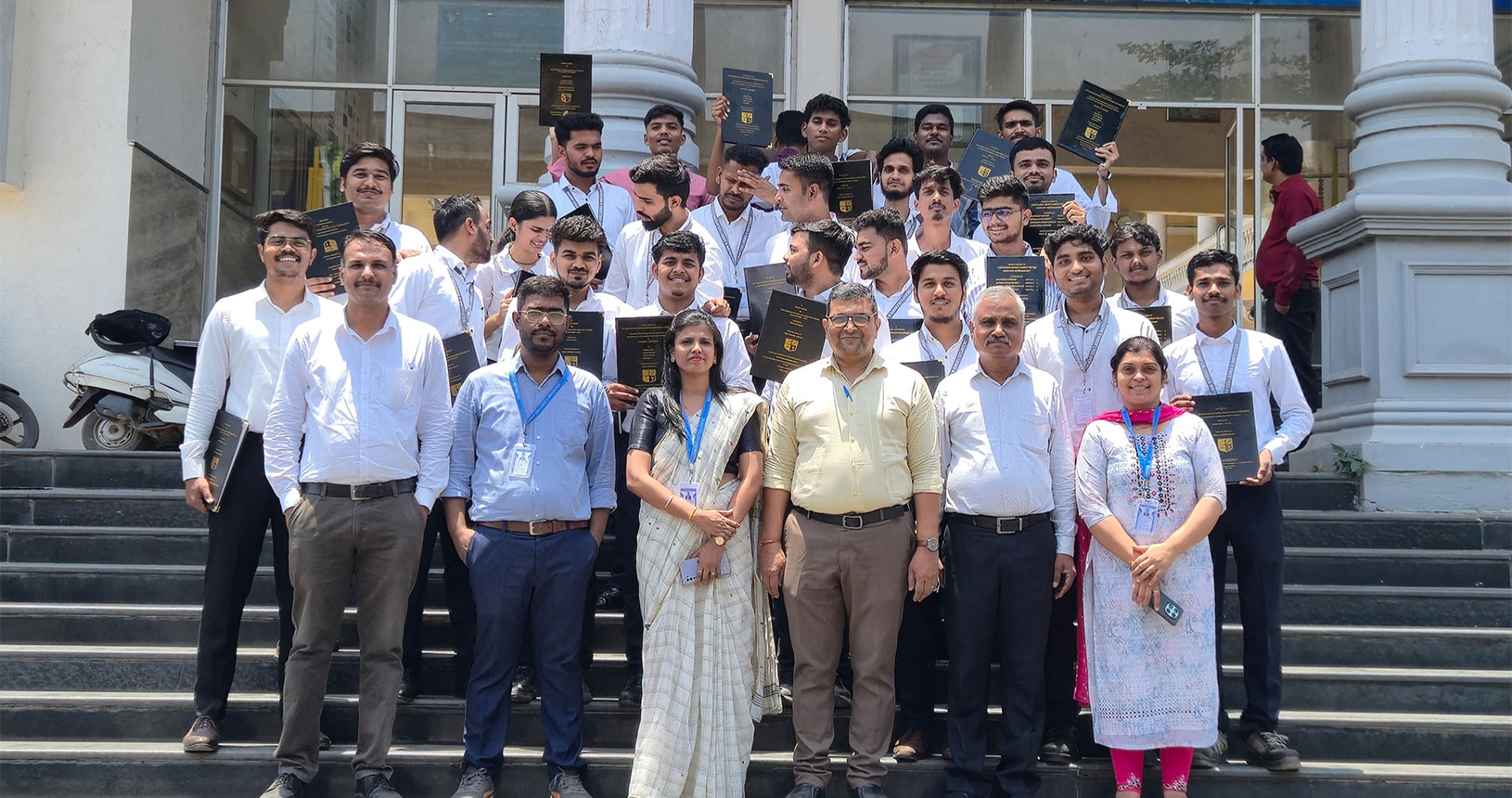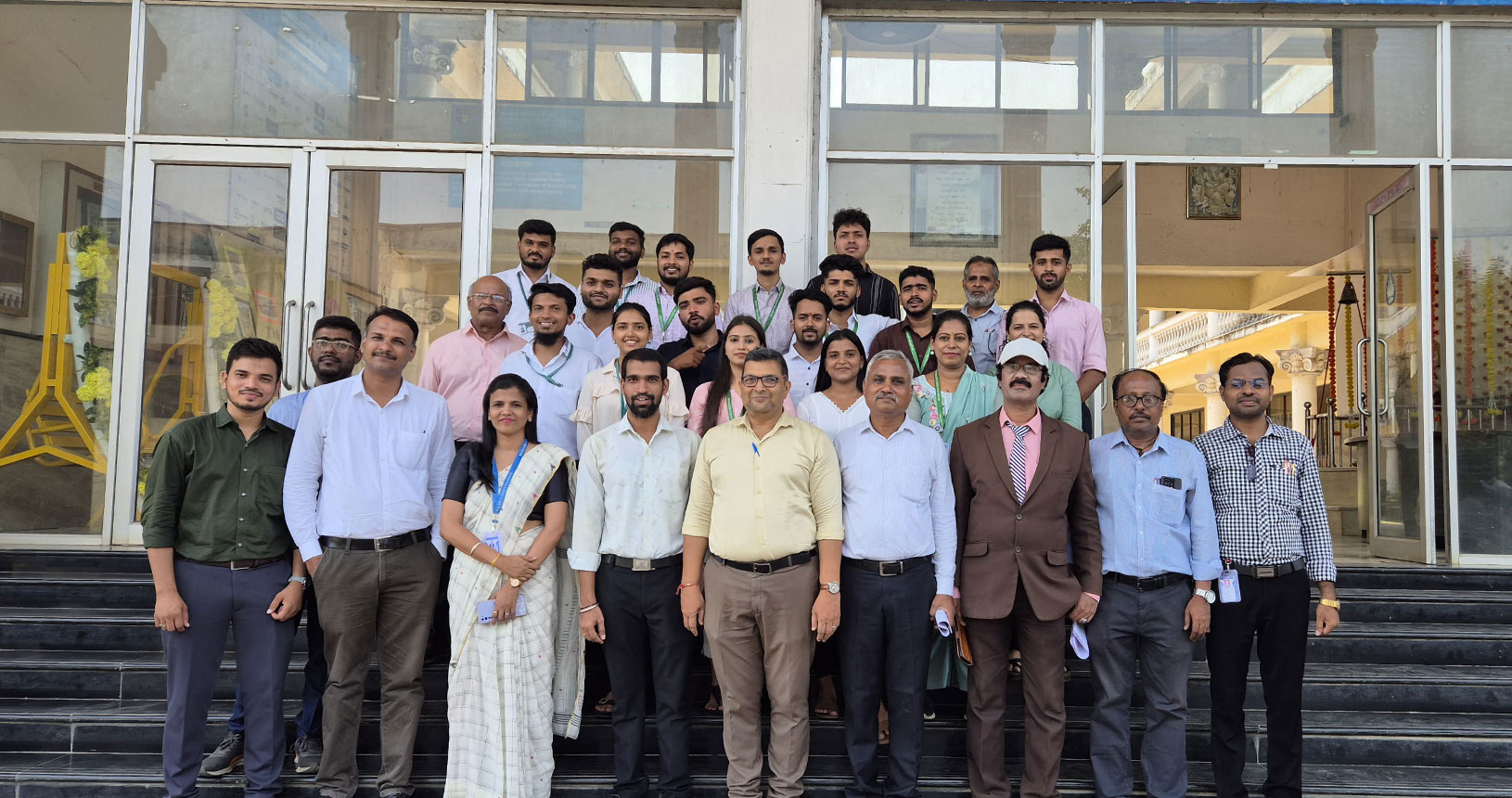ABOUT DEPARTMENT
The Department of Electrical Engineering at DRIEMS is affiliated with the University of Mumbai and approved by DTE and AICTE. Our program is meticulously designed to prepare students for successful careers in industry or higher studies, enabling them to meet the future challenges of technological development.
Electrical Engineering is a dynamic field with immense scope in India, propelling advancements across various industries through the application of electricity.
Our institute thrives on the unparalleled support of top-tier multinational companies, ensuring our graduates are well-prepared for the engineering profession's evolving demands. Pursue your engineering degree at one of the best engineering colleges in Maharashtra, and be a part of the advancement of technology and society.
15
YEARS OF LEGACY
OUR VISION
“To create Competent Graduate in Electrical Engineering with moral and social responsibilities.”

OUR MISSION
“To enhance competency by providing qualified professionals and excellent infrastructure with well equipped teaching & learning process to produce quality Electrical Engineer.”
LABS
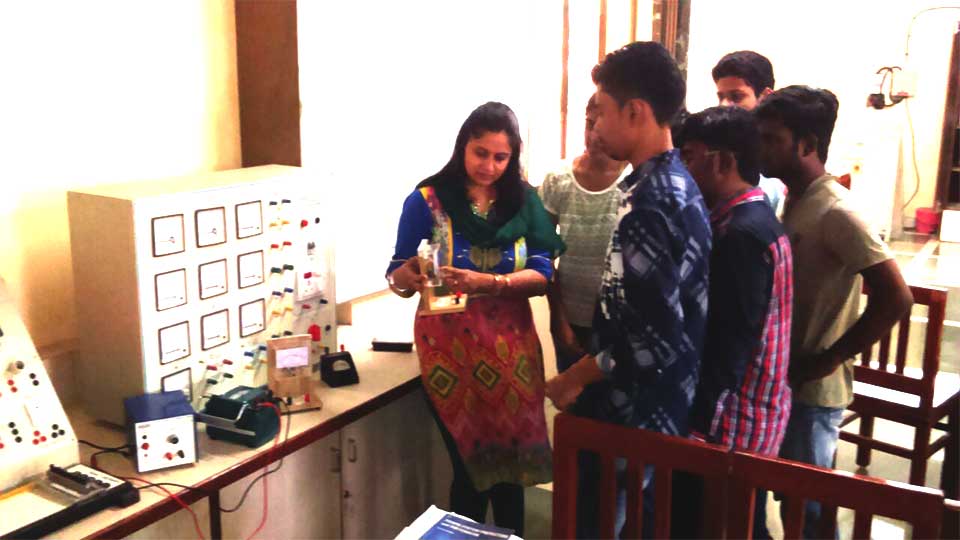
In the Electronics Lab, students gain practical experience in designing and testing electronic circuits. The lab is equipped with modern oscilloscopes, signal generators, and circuit design software, allowing students to work on projects involving analog and digital electronics, microcontrollers, and embedded systems.
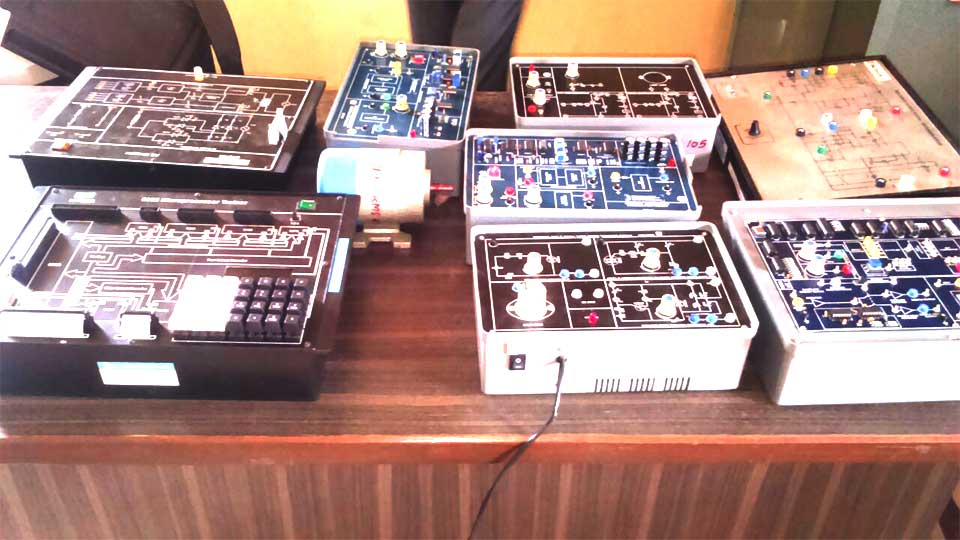
The Control Systems Lab provides an environment for students to explore the principles of automatic control and system dynamics. With access to sophisticated controllers, sensors, and simulation tools, students can design, analyze, and implement control systems for various engineering applications.
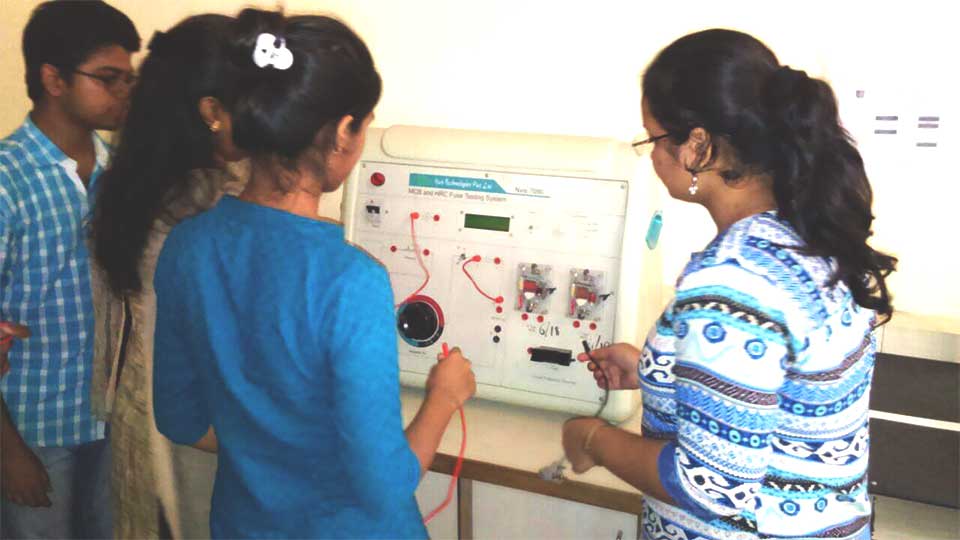
The Power Systems Lab is designed to offer practical insights into the generation, transmission, and distribution of electrical power. With advanced simulation tools and testing equipment, students can study power system stability, load flow analysis, and fault diagnosis, preparing them for real-world challenges in power engineering.
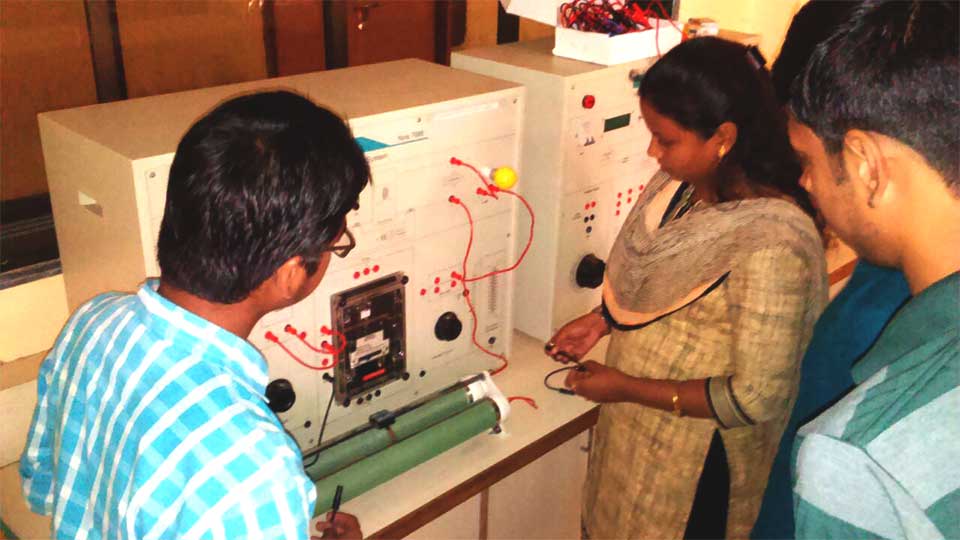
Our Electrical Machines Lab is equipped with various types of electrical machines and equipment, providing students with hands-on experience in operating and analyzing the performance of transformers, motors, and generators. This lab helps students understand the principles of electromechanical energy conversion and the operation of different types of electrical machines.
Program Educational Objectives (PEO)
Graduates will establish successful careers in the electrical engineering industry or pursue advanced studies to address the evolving challenges of technological advancements.
Graduates will develop robust analytical and logical skills, enabling them to proficiently analyze, design, and control electrical systems.
Graduates will cultivate professional skills, excelling both individually and as team members in various engineering settings.
Graduates will engage in research activities within emerging interdisciplinary fields, contributing to technological innovation and development.

Program Outcomes (PO)
Apply foundational knowledge of mathematics, science, and specialized engineering disciplines to solve complex engineering problems.
Identify, formulate, and analyze intricate engineering problems, drawing well-founded conclusions based on principles of mathematics, natural sciences, and engineering.
Create innovative solutions for complex engineering challenges, designing system components or processes that meet specified requirements, considering public health, safety, cultural, societal, and environmental factors.
Utilize research-based knowledge and methodologies, including experimental design, data analysis, and information synthesis, to derive valid conclusions.
Employ appropriate techniques, resources, and modern engineering and IT tools for complex engineering tasks, understanding their limitations.
Employ appropriate techniques, resources, and modern engineering and IT tools for complex engineering tasks, understanding their limitations.
Recognize the impact of professional engineering solutions in societal and environmental contexts, demonstrating a commitment to sustainable development.
Uphold ethical principles and adhere to the professional responsibilities and norms of engineering practice.
Function effectively both as an individual and as a member or leader of diverse and multidisciplinary teams.
Communicate proficiently on complex engineering matters with peers and society, including the ability to write clear reports, design documentation, deliver effective presentations, and give and receive instructions.
Apply engineering and management principles to one’s work, demonstrating the capability to manage projects and lead teams in multidisciplinary environments.
Recognize the necessity for lifelong learning and possess the ability to engage in continuous learning amidst technological advancements.


Program Specific Outcomes (PSO)
Graduates will be adept at designing, analyzing, and evaluating the performance of various electrical machines, power generation, transmission, distribution systems, and protection mechanisms within power systems.
Graduates will demonstrate expertise in the analysis, design, installation, and experimental practices related to electrical engineering.
Graduates will provide technically sound and socially acceptable solutions to complex electrical engineering problems using modern techniques, emphasizing sustainable development.
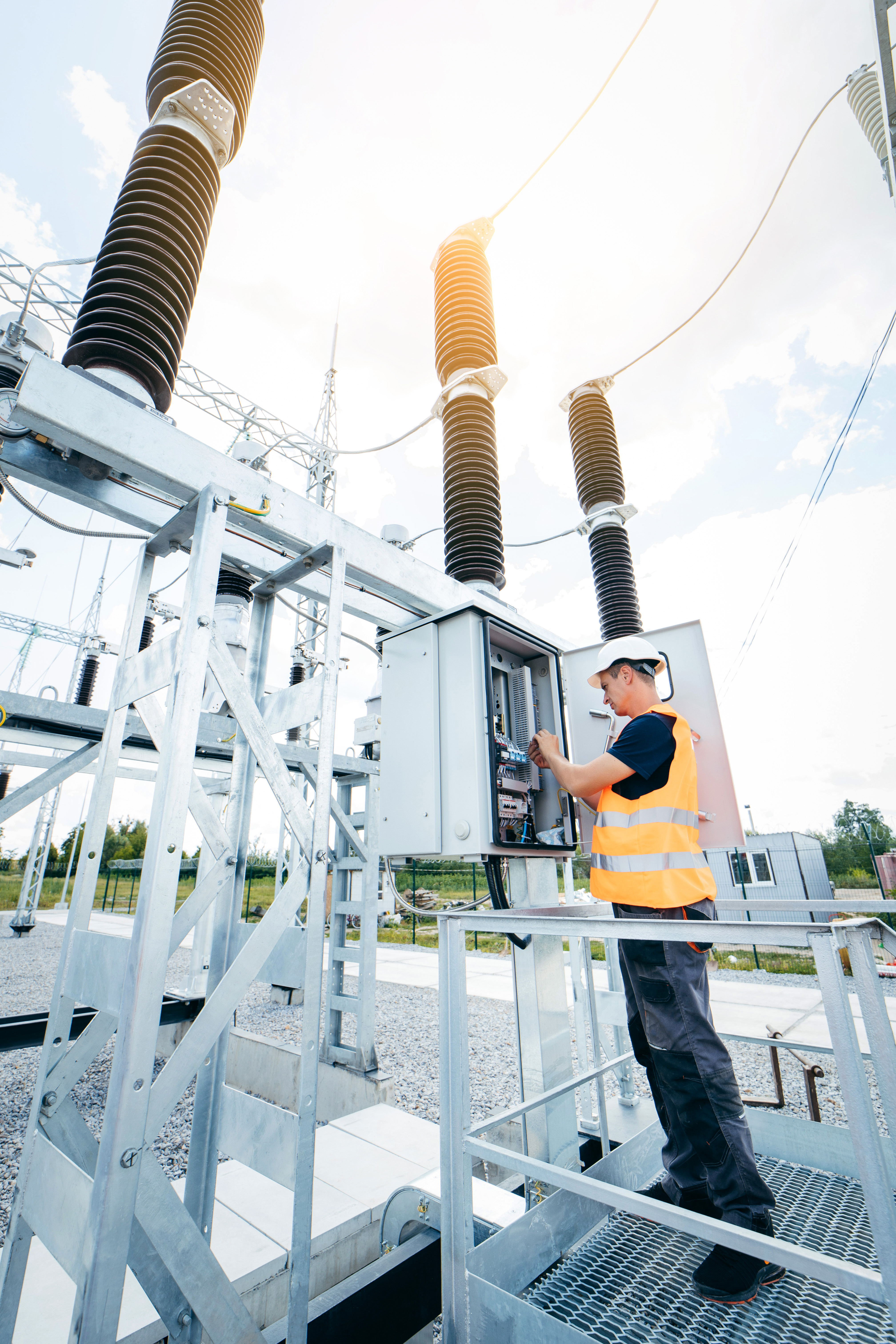
INTERNATIONAL PLACEMENT
WOMEN DEVELOPMENT CELL
STUDY & WORK ABROAD
Our Proud Placement Partners
STUDY & WORK IN 6 COUNTRIES
KNOW FROM OUR STUDENTS
Faculty Profile
Our dedicated faculty members are experts in their fields, committed to providing high-quality education and fostering innovative research. With diverse specializations, our faculty ensures a comprehensive and up-to-date curriculum. We emphasize a blend of theoretical knowledge and practical experience, preparing our students to excel in the rapidly evolving field of electrical engineering.

PROF. Ashwini Mhatre
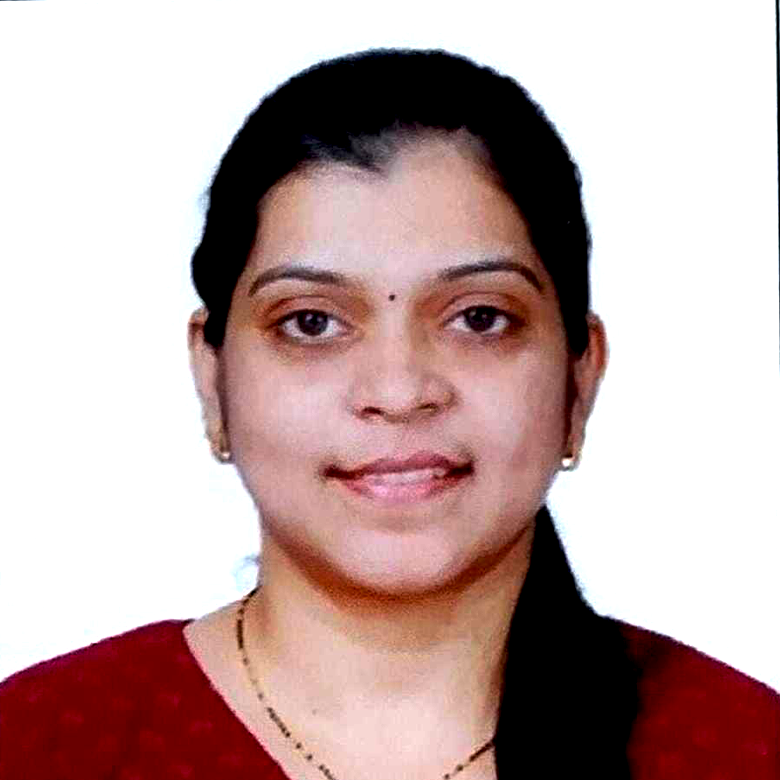
PROF. Dipali Dinkar Kadam

PROF. Rashmi M Patil
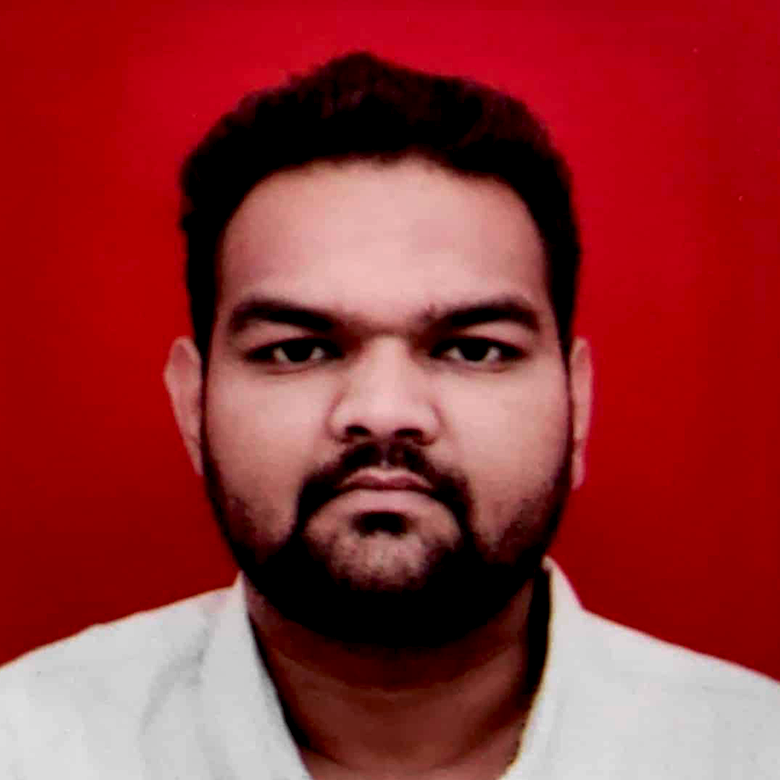
PROF. Bhavesh Bhoir

PROF. Md Ajmal Nayab
